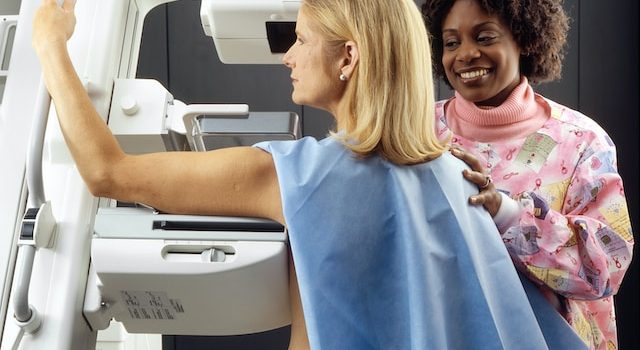
In a recent development, a group of health experts has recommended that women should begin getting mammogram screenings at the age of 40. This announcement comes as a significant change from previous guidelines that suggested women start getting screened at the age of 50. The new guidelines could potentially lead to earlier detection of breast cancer and ultimately save lives.
The U.S. Preventive Services Task Force, a government-appointed panel of medical experts, released the new recommendations earlier this week. The panel’s updated guidelines are based on an extensive review of scientific evidence and take into account the benefits and risks of mammography screenings for women in their 40s.
According to the panel, mammograms should be offered to women at average risk of breast cancer every two years between the ages of 50 and 74. However, for women in their 40s, the panel suggests that the decision to start screening should be an individual one based on a woman’s preferences and overall health.
Dr. Michael Barry, a member of the panel and a professor of medicine at Harvard Medical School, said, “What we found in reviewing the evidence is that starting screening at age 40 is associated with a greater reduction in breast cancer mortality than starting at age 50. However, the benefits are smaller, and there are also more harms, such as false positive results, unnecessary biopsies, and overdiagnosis.”
The new guidelines have sparked controversy in the medical community, with some experts arguing that starting screening at 40 may lead to unnecessary testing and anxiety for women. Others, however, believe that the benefits of early detection outweigh the risks.
Breast cancer is the second most common cancer among women in the United States, with an estimated 279,000 new cases expected to be diagnosed in 2021, according to the American Cancer Society. The organization recommends that women with an average risk of breast cancer start getting mammograms at age 45 and continue yearly screenings until age 54. After that, women should continue to get screened every two years or switch to annual screening based on their personal preferences.
Dr. Carolyn Bruzdzinski, a breast imaging specialist at Johns Hopkins Medicine, commented on the new guidelines, saying, “This is a complex issue, and women should talk to their healthcare providers about what’s right for them. We want to make sure women are getting the care they need while minimizing unnecessary testing and anxiety.”
In conclusion, the new guidelines from the U.S. Preventive Services Task Force recommending that mammogram screenings for women should begin at the age of 40 are a significant development in the field of breast cancer detection. While there is debate in the medical community about the risks and benefits of earlier screening, it is clear that women should talk to their healthcare providers about their individual risk factors and preferences to make informed decisions about their health.










